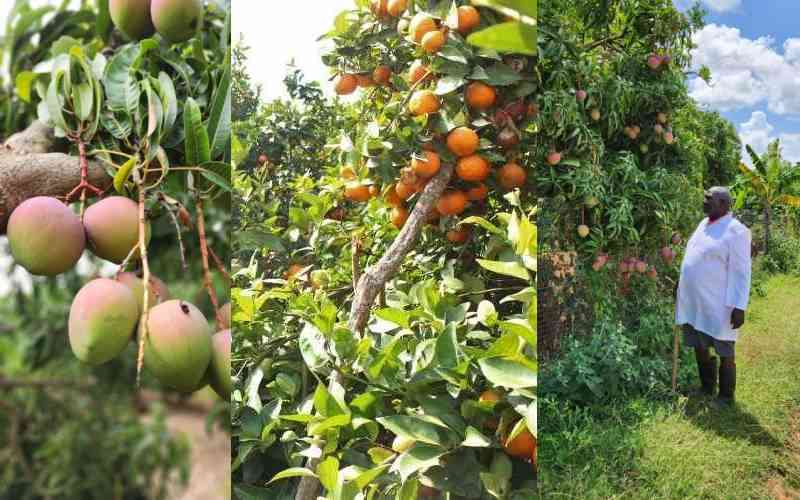
Comping through the 37-acre Joyland Farms is like an adventure, a total contrast to the picture that has always been painted about the semi-arid vast county of Makueni. They call it the modern-day garden of Eden, a hidden paradise that has made the hilly Muthyoi village famous.
For the last 50 years, this is what Mzee Peter Mwaka, 75, put his all in. It is a wonderland of tens of species of citrus fruits, a bliss of mango trees and an arcadia of beehives all set on a commercial scale. It is a virgin land where water springs flow freely from the rocky hills breathing life into the canopy of indigenous trees. In this ensemble, Mwaka has struck a goldmine, a multi-million shillings empire that has become the envy of all.